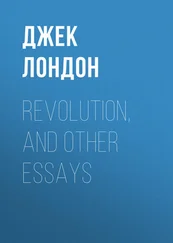Guy Thorne - I Believe and other essays
Здесь есть возможность читать онлайн «Guy Thorne - I Believe and other essays» — ознакомительный отрывок электронной книги совершенно бесплатно, а после прочтения отрывка купить полную версию. В некоторых случаях можно слушать аудио, скачать через торрент в формате fb2 и присутствует краткое содержание. Жанр: foreign_prose, на английском языке. Описание произведения, (предисловие) а так же отзывы посетителей доступны на портале библиотеки ЛибКат.
- Название:I Believe and other essays
- Автор:
- Жанр:
- Год:неизвестен
- ISBN:нет данных
- Рейтинг книги:3 / 5. Голосов: 1
-
Избранное:Добавить в избранное
- Отзывы:
-
Ваша оценка:
- 60
- 1
- 2
- 3
- 4
- 5
I Believe and other essays: краткое содержание, описание и аннотация
Предлагаем к чтению аннотацию, описание, краткое содержание или предисловие (зависит от того, что написал сам автор книги «I Believe and other essays»). Если вы не нашли необходимую информацию о книге — напишите в комментариях, мы постараемся отыскать её.
I Believe and other essays — читать онлайн ознакомительный отрывок
Ниже представлен текст книги, разбитый по страницам. Система сохранения места последней прочитанной страницы, позволяет с удобством читать онлайн бесплатно книгу «I Believe and other essays», без необходимости каждый раз заново искать на чём Вы остановились. Поставьте закладку, и сможете в любой момент перейти на страницу, на которой закончили чтение.
Интервал:
Закладка:
It can be answered by a simple statement of fact – in our colonies there are places for a hundred million wives.
While I have not lost sight of the main object of this paper – to summarize the weight of Catholic Christian feeling upon the mechanical limitation of population, and to tell how this is being accomplished – I find that there is yet some ground to be cleared before coming to the main issue.
I have said that there is only one material cause of our decadence, but there are many reasons.
More than a year ago in one or two newspapers, particularly the Daily Chronicle , various sociologists gave the results of their thought upon the matter. I print a few extracts here.
The outspoken Dr. Barry wrote: —
…”‘As for religion, Christian or any other, when its dogmas are no longer believed, its ethics pass away,’ and he draws a picture of the rotten state of society in our Western world, which he attributes directly to the growth of agnosticism. The fact that the birth-rate in England has been declining for twenty-five years, and was lowest in 1904, seems to Dr. Barry to be due to several causes – ’poverty and luxury, pleasure-seeking and disbelief in the Bible,’ and he adds, ‘The spirit of anarchic individualism that cries, “No God, no Master!” is needed to tell us why Englishmen and their wives, once dedicated to a blameless and lasting union, have fallen into the pit which Malthus or his followers digged for them.’ England alone is not at fault. ‘Wherever unbelief has taken hold, or doubt saps the ancient creeds, there Malthus reigns instead of Christ.’”
A “well-known public man” wrote: —
…“It is within my knowledge that certain flats in Mayfair and elsewhere for the married servant and artisan class are let on the express or implied condition that not only no children shall be brought into the tenements, but that none shall be born there. The direct consequence of this embargo on natural increase is terribly disastrous. Many footmen and coachmen in Mayfair could tell a tragical story of the results of compulsory sterility.
“A Japanese friend was telling me the other day that after an absence from England of a dozen years he is startled at the visible deterioration of the race and the great increase of penniless British weaklings, who add strength to no nation. ‘You English are losing both patriotism and religion, and consequently you are not only decadent but doomed, unless you mend your ways in the treatment of women and children.’”
I take the following from a leading article in the Church Times : —
…“After making all allowances for minor contributory causes, the fact remains and may be proved by a little inquiry, that married people have come to regard a large family as a curse instead of a Divine blessing. The birth-rates in London are instructive. Residential districts, with fewest poor, show the lowest rates. Hampstead 16·6 and Fulham 32·3 may be taken as typical districts at each end of the scale. Stepney with its Jewish population has a rate of 37. If the Aliens Bill is to be effective it will need a clause compelling Jews to limit their families, just as their Christian (!) neighbours do. The misery of it all is that we find the practice of child murder, for such it is in plain English, defended by men of education; lawyers, medical men, and even priests make no secret of their approval of it, if no more. And as working men become aware of what their ‘betters’ are saying and doing – and they are not slow to follow a similar course – the evil spreads. Our proper leaders, the Bishops, ought long ago to have dealt with this subject resolutely and firmly. But apparently a grain of incense is a more terrible thing to them than the murder of an existing if unborn personality. We can only judge by their public utterances, but we have yet to learn that as a body their lordships have spent a thousandth part of the time over this supreme question of national morality that they have devoted to the suppression of things disapproved of by Lady Wimborne and her league. The spectacle of disproportionate interest and action is melancholy, and indicative of incapacity to observe the real dangers to be faced.”
Again —
“The personal causes of this mischief are fear of pain ( i. e. failure to see in pain the discipline of God which elevates human nature), hatred of duty, shirking of responsibility, love of pleasure, the substitution of hedonism for the religion of Jesus Christ the Lord, and ignorance of the Holy Spirit as Lord of all life. How far religious teachers are accountable for this we leave to their own consciences to say. The same causes are at work in the high mortality of infants. The honour of doing her best for her child is cast aside by many a mother because it involves a certain amount of self-restraint and some seclusion from the gaieties of the hour; and recourse is had to all sorts of patent nostrums and infants’ ‘food’ (often the cause of rickets) until the hospitals are over full of young children, whose sufferings are the result (God grant that they may be the atonement also) of their mothers’ negligences and ignorances. Where there is not deliberate and wilful avoidance of maternal duty, there is neglect through awful ignorance.”
In the Daily Mail Mr. H. G. Wells writes: —
…“On the other hand think of the discouragements. While the mother toils in a restricted anxious home amid her children, she sees through her imperfectly cleaned window (one can’t do everything) the childless wives having a glorious time, going a-bicycling with their husbands, dressed gaudily with all his superfluous income, talking about their ‘Rights.’ As her children grow up to an age when they might help drudge with her or drudge for her, the State, without a word of thanks to her, takes them away to teach them and make good citizens of them. If the husband presently becomes bored by his restricted prolific household and its incessant demands, and absconds, or if he is simply unlucky and gets out of work, the State deals with her in a spirit of austere ingratitude. She is subjected to ‘charity’ and every conceivable indignity; she undergoes profounder humiliations than fall to the lot of the most dissolute women. If a husband ‘goes wrong’ and a woman has kept childless, she can get employment, she can shift for herself and be well quit of him, but a family disaster for a mother is catastrophe.
“I submit the situation is preposterous. I do not believe that with increasing intelligence and refinement women will go on marrying and bearing children under such conditions. I gather that the statistics of marriage-rates and birth-rates bear me out in this.”
And in the Daily Chronicle the Rev. Cartmel-Robinson: —
…“This phenomenon of the falling birth-rate is of course not confined to England; it is to be met with, you might say generally, in all Christian countries. It would be far more marked but for the tremendous decline in the death-rate, especially among infants. We ourselves should be vitally bankrupt but for this factor, and in France, as you know, the population is slowly dropping. That is an old story, but it is startling to learn, as President Roosevelt tells us, that the native-born American population is actually declining.
“One of the main causes, no doubt, is the determined pursuit of pleasure by all classes. The man will not take the burden of providing for a family, or, at any rate, a large family, upon himself, because that would mean a curtailment of his luxuries, perhaps even his necessities, while the woman refuses to spend all the prime of her life in child-bearing and child-rearing. She also wants to enjoy herself, and the pure, simple joys of maternity, which we used to think ought to be sufficient for a woman, have in many cases become irksome.
Читать дальшеИнтервал:
Закладка:
Похожие книги на «I Believe and other essays»
Представляем Вашему вниманию похожие книги на «I Believe and other essays» списком для выбора. Мы отобрали схожую по названию и смыслу литературу в надежде предоставить читателям больше вариантов отыскать новые, интересные, ещё непрочитанные произведения.
Обсуждение, отзывы о книге «I Believe and other essays» и просто собственные мнения читателей. Оставьте ваши комментарии, напишите, что Вы думаете о произведении, его смысле или главных героях. Укажите что конкретно понравилось, а что нет, и почему Вы так считаете.












